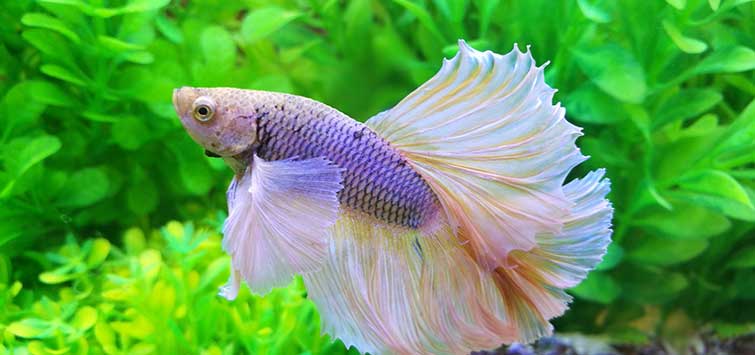How to Select the Right Betta Fish for Your Fish tank
How to Select the Right Betta Fish for Your Fish tank
Blog Article
The Ultimate Guide to Betta Fish Treatment: Essential Tips for Preserving a Healthy And Balanced and Successful Fish Tank Setting
Effective Betta fish treatment requires an extensive understanding of their unique ecological and physiological demands. Developing an ideal fish tank starts with choosing the right tank dimension and making certain optimal water problems, which are crucial for the health and wellness and wellness of your Betta. Moreover, understanding appropriate feeding methods and creating a conducive habitat can dramatically influence your fish's vitality and habits. As you consider these fundamental elements, it ends up being clear that maintaining a prospering fish tank setting needs focus to information and recurring dedication. What specific techniques will you carry out to improve your Betta's top quality of life?
Selecting the Right Container
Choosing the proper tank for your Betta fish is vital to guaranteeing its health and wellness and well-being. Bettas flourish in settings that imitate their all-natural environments, which normally include calm, cozy waters. A storage tank dimension of a minimum of five gallons is suggested to give sufficient swimming area, as smaller storage tanks can lead to anxiety and wellness issues for these lively fish.
When picking a storage tank, think about the tank's form and purification system. Furthermore, a trusted purification system is vital to maintain water high quality and minimize the frequency of water adjustments.
Temperature level law is another key element; Bettas choose water temperature levels between 76 ° F and 82 ° F. Purchasing an excellent heating system will make certain that the water continues to be within this array, promoting a healthy and balanced and active way of life for your Betta. Providing proper storage tank designs and concealing places will assist decrease anxiety and urge all-natural actions, even more improving your Betta's wellness.
Preserving Water High Quality
Preserving ideal water top quality is necessary for the wellness and long life of Betta fish. This requires routine tracking of numerous parameters, consisting of temperature level, pH, ammonia, nitrite, and nitrate degrees.
Routine screening using a trusted water screening kit can assist guarantee these specifications continue to be within the ideal arrays. Ammonia and nitrite degrees must always be at 0 ppm, as also reduced concentrations can be toxic to Betta fish.
Routine water modifications are essential to preserving water top quality. It is advised to transform 25-50% of the tank water weekly, depending on the storage tank dimension and stocking levels. Using a top quality water conditioner can aid get rid of harmful chemicals from faucet water, guaranteeing a secure atmosphere. In addition, including a durable purification system can assist in maintaining water quality and high quality, supplying a much healthier habitat for your Betta fish.
Ideal Feeding Practices
Offering a balanced diet regimen is crucial for the health and wellness and dynamic coloration of Betta fish, as their dietary demands play a substantial role in their overall wellness. Betta fish are carnivorous by nature, needing a diet high in healthy protein. A mix of top notch pellets, frozen or real-time foods such as bloodworms, brine shrimp, and daphnia can offer the vital nutrients they require.
Feed your Betta fish two to three times a day, offering only what they can eat within a couple of mins to stop overfeeding and keep water high quality. Overfeeding can bring about excessive weight and wellness issues, including swim bladder illness. It is vital to monitor their dietary intake and adjust section dimensions as necessary.
Along with protein, a well balanced diet ought to consist of nutrients to advertise optimal health. Take into consideration supplementing their diet regimen with top quality flakes or pellets specifically developed for Betta fish, as these commonly have required additives.

Producing an Ideal Habitat

Water top quality is paramount; preserve a temperature level between 76 ° F and 82 ° F, and ensure the pH level varies from 6 - betta fish.5 to 7.5. Regular water modifications of 25-50% weekly will certainly assist keep contaminants away and make certain a steady atmosphere
Integrating plants and hiding spots is important, as Betta fish are naturally territorial and appreciate having areas to discover and pull away. Live or silk plants, along with caverns and look at here accessories, can develop a stimulating setting.

Regular Wellness Checkups
Performing regular health check-ups is vital for ensuring the health of Betta fish, as very early detection of potential concerns can protect against severe health issue. These checkups should include a thorough assessment of the fish's physical problem, habits, and environmental factors.
Begin by observing the Betta fish for any signs of distress, such as lethargy, anorexia nervosa, or uncommon swimming patterns. In addition, inspect the fins and body for indications of discoloration, sores, or fin rot, which can indicate infections or bloodsuckers. Consistently keeping an eye on the water quality in the aquarium is just as critical; criteria such as pH, ammonia, nitrite, and nitrate levels should be preserved within ideal ranges to avoid tension and illness.
In addition, consider keeping a log of health and wellness monitorings and water quality examinations. Timely treatment can make a considerable difference in the recovery of your Betta fish, guaranteeing a lengthy and healthy and balanced life in a well-maintained fish tank atmosphere.
Conclusion
In conclusion, effective Betta fish treatment pivots on creating and preserving an optimal site aquarium environment. By complying with these standards, aquarists can promote the well-being and vibrancy of Betta fish, eventually resulting in a growing marine ecosystem.
Report this page